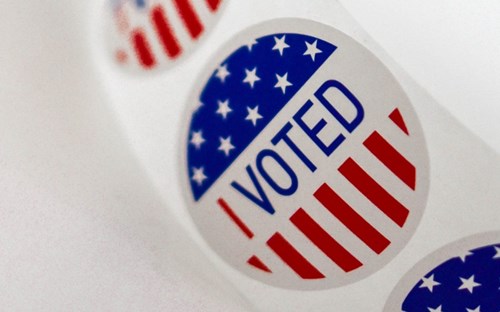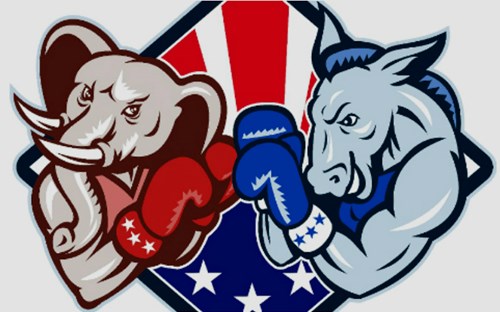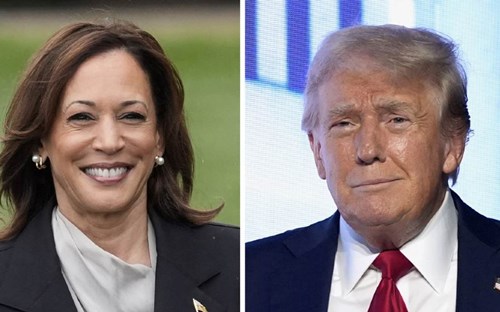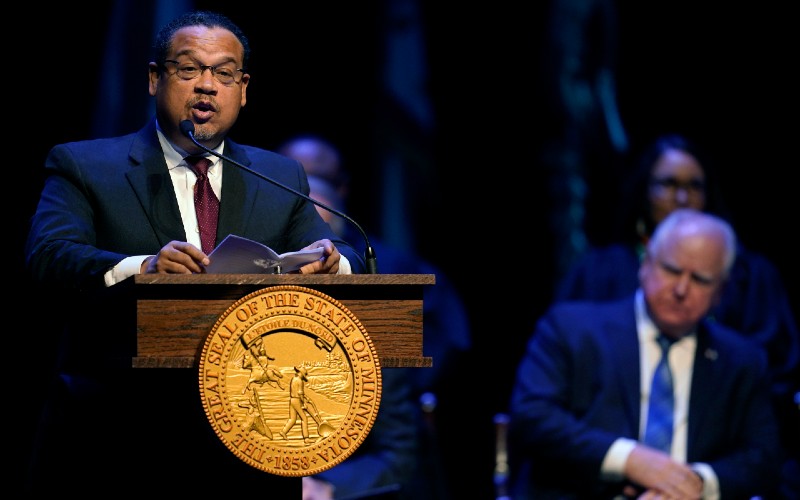Democrats appear to be excited about Kamala Harris after chasing off their nominee, Joe Biden.
Republicans, most of them, hope former president Donald Trump will survive the dangerous rhetoric thrown against him to earn a second term.
Whether either party can control both chambers of Congress, and smooth the legislative path for their candidate, is unclear.
Many of the down-ballot races are just as tight. A ballot for one party for the White House doesn’t necessarily mean a vote for the same party when a House or Senate seat is on the line.
 “Your vote absolutely does matter now more than ever. This country is split down the middle, it really is, and often, it really isn’t about persuasion, it’s about turnout,” Rich Baris, director of Big Data Poll, said on Washington Watch Monday.
“Your vote absolutely does matter now more than ever. This country is split down the middle, it really is, and often, it really isn’t about persuasion, it’s about turnout,” Rich Baris, director of Big Data Poll, said on Washington Watch Monday.
“You have to get out and vote. You have to get five friends to get out and vote. It’s the era we live in. The side that does that more and wants it more is the side that’s going to win,” he told show host Tony Perkins.
If House and Senate projections at RacetotheWH.com hold, Capitol Hill will remain split, but the chambers will have new leadership.
The website gives Democrats a 61.7% chance to win the House of Representatives and Republicans a 62.2% chance to win the Senate.
Currently, Republicans hold 49 Senate seats to Democrats’ 47, but three Independents caucus with Democrats and the fourth counts toward Democrats for committee purposes, according to BallottPedia.com.
Senate races to watch
RacetotheWH.com sees four Senate seats either solid Republican or leaning Republican.
The polling average at RealClearPolling.com gives Republican challenger Tim Sheehy, a former Navy SEAL, a 5.2-point edge to flip the Senate seat held by Democrat Jon Tester.
Tester last week blasted an AARP poll that had him trailing Sheehy 49-41, Fox News reported.
Tester told reporters he’s not concerned that polls show him behind in the race.
In Texas, incumbent Ted Cruz has held a narrow lead against Democratic challenger Colin Allred, a sitting House member, through most of the race.
RacetotheWH.com gives Cruz a lead of 5.6 points and a 74.9% chance to win.
In the House, Democrats took the polling lead with 50.9% in February and have extended the lead by almost 11 points.
 Currently, Republicans have 220 seats to the Democrats’ 211.
Currently, Republicans have 220 seats to the Democrats’ 211.
Baris reiterated the importance of every vote.
“These races are close. In the off-cycle in Louisiana last year, everybody paid attention to the gubernatorial race, and of course that matters, but down ballot, there were some contested ballots, a judge wound up throwing out a few of them, and in one race, it was one vote that decided the outcome,” he said.
Since Harris’ entry into the race, both sides have become very engaged.
“Democrats were basically asleep or hiding under a rock for months after the debate with Joe Biden where he just collapsed on camera. They all but vanished. They were very difficult to poll. Those we did speak to, they were not enthusiastic at all, and Republicans had an edge in enthusiasm for about a year,” Baris said.
In a divided America, Baris says current projections call for a lot of “ticket-splitting” where a candidate from one party wins an individual race while the other party’s candidate carries the state.
“The polls suggest it is coming. I’m not sure that will last," the political expert predicted.
 Baris said the election could see voters who cast a ballot for Kamala Harris then turn and vote for a Republican candidate down ballot.
Baris said the election could see voters who cast a ballot for Kamala Harris then turn and vote for a Republican candidate down ballot.
“And vice versa. It’s worth pointing out that we did see that in ’16 as well,” he said.
All politics are local, it’s often said. That tends to hold true, which leads to ticket-splitting more in the mid-term elections than presidential cycles, Baris said.
That’s why the possibility of it this time raises eyebrows.
"At the end of the day, when we get close to the election, partisans do usually come home," Baris explained. "We haven’t seen a lot of it actually materialize in the vote. In mid-terms, yes, but in presidential cycles, no, so this is interesting to watch.”
Prediction: High turnout, close races
Baris said the numbers from earlier this month at Big Data Poll showed Republicans with a very slight edge in terms of enthusiasm.
“In the first poll we did after Harris became the nominee, enthusiasm, it was basically the two parties were mirroring each other," he shared. "This last poll that was released at the end of last week, and Republicans retook a slight advantage, but it is slight. This looks to us like it’s going to be a high turnout election, and it’s going to be close.”







